Last fall, while the Ducks football team dominated its regular season opponents leading to a Big Ten Championship and College Football Playoff bid, Ally Smith was right there on the sidelines.
As an athletic medicine intern with University of Oregon Athletics, the third-year human physiology major was assisting athletes during practices and game days, taping wrists and ankles, helping with ultrasounds, ensuring they stay hydrated and providing support to prevent injuries and maximize sports performance for a variety of Ducks teams.
"You're working behind the scenes and seeing everything that goes on. You're a part of the athletic team, and you're also part of the medical team," says Smith, who has worked with women's lacrosse and the acrobatics and tumbling team as well as the football team. She has also volunteered for the NCAA Track & Field Championships and the softball and baseball regional championships.
Smith was able to take part in these learning opportunities by taking advantage of the Department of Human Physiology's stipend for unpaid internships. The stipend, a set dollar amount for the term, helps remove financial barriers that may preclude a student from taking on an unpaid internship. This financial support creates an opportunity for more students to see medicine at work and consider various career trajectories for after college.
"Not all students can afford to volunteer to have access to these experiential learning opportunities," says Amy Sibul, internships and career readiness director for the Department of Human Physiology. "We've received a lot of feedback over the years that this is a powerful experience, but students were really struggling to afford their lives. Working 18 or more hours a week unpaid limits how much they can work at a paid job, and they're juggling books and rent."
Five interns per term generally receive approximately $1,000 stipends based on their financial need. An additional $5,000 was made available for more students each term, beginning this fall through spring 2027. The additional financial support is thanks to a gift from Eugene-based Cascade Health and the virtual medical service Oregon Telemed.
"Investing in human physiology students means investing in the future of medicine, health and human understanding," said Dr. Richard Abraham, an emergency and occupational medicine physician and member of Cascade Health. "This financial support is our way of helping passionate physiology students stay focused on learning, growing and making a real difference in people's lives and in the future of health care."
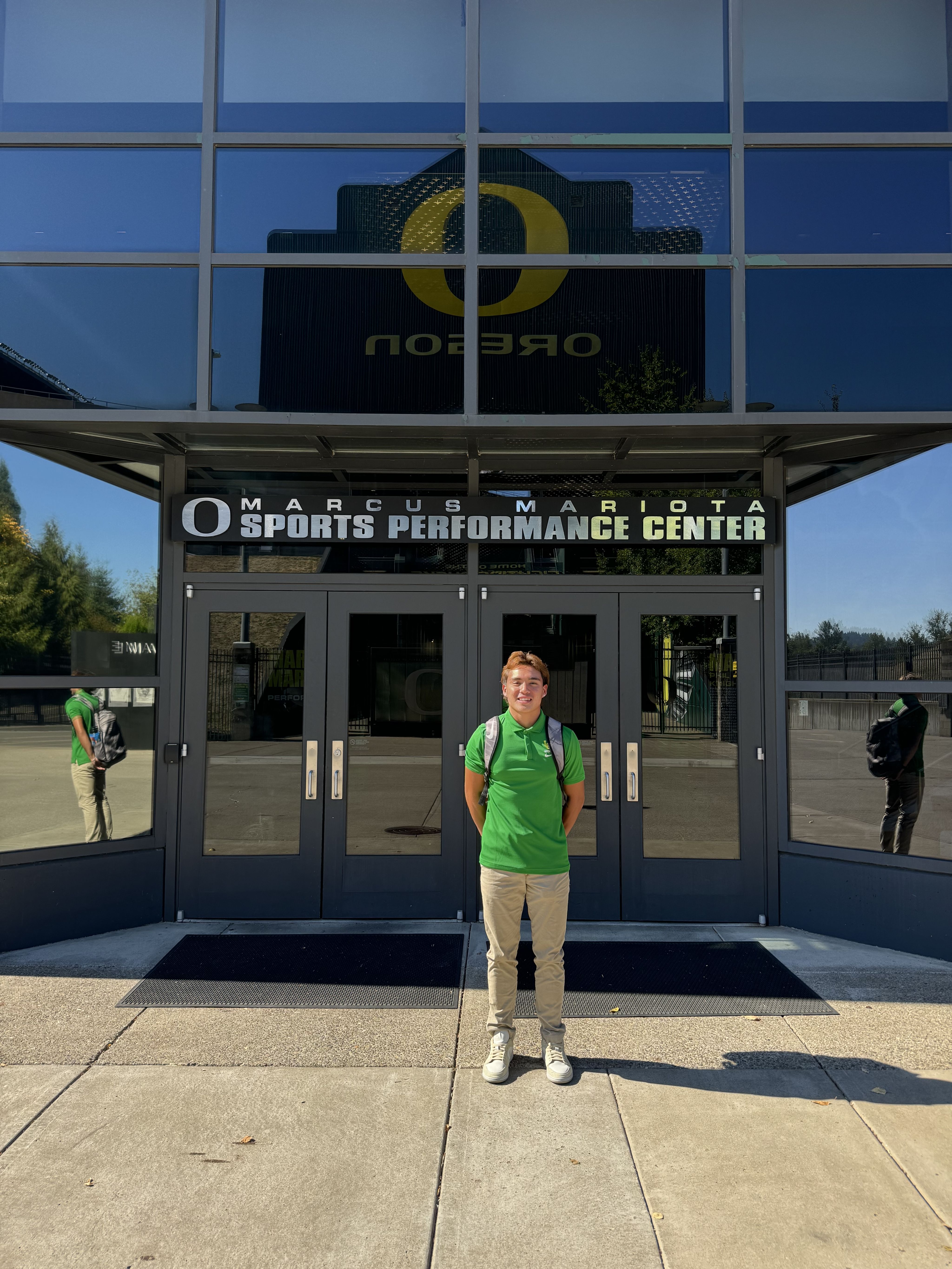
Cam'Ron McDonald is a fourth-year human physiology and neuroscience double major. He worked as an intern for the Oregon Ducks football team. He recently received a stipend for the fall 2025 term.
From sidelines to labs
Interns play an important role in helping Ducks excel in athletic competition, says Jordan Troester, former director of performance and sports science at Oregon Athletics Department.
"It's a massive benefit for us just to have the manpower to execute our mission on a daily basis," he says. "Hopefully it also helps our interns connect their scientific learning within their degree with what that looks like in an actual career field."
Students who are interested in careers in physical therapy, athletic medicine or other sports-related fields gain hands-on experience working behind the scenes with athletes, coaches and medical professionals. They also become acclimated to working in the fast-paced and intense athletic environment.
"There's lots of screaming, yelling and cursing. It's very intense," says Cam'Ron McDonald, a fourth-year human physiology and neuroscience major and an intern for the Ducks football team. "It's given me the opportunity to be right there, talking to coaches and players. I want to coach as well as become a physical therapist, and I've gotten lots of practice speaking to athletes both one on one and in groups."
In his internship, McDonald works with graduate students to collect data on how the acceleration and velocity of football players pertains to injury. He helps conduct weekly baseline testing for athletes to ensure they're meeting their physical targets and identify areas for strengthening.
During games and practices, he helps set up athletes with GPS trackers to collect data and then monitors the output on a computer to ensure everything is running smoothly.
"Sometimes they'll ask for live feedback, such as what speeds they're hitting or what the players are achieving, and I'll relay that to the coaches," he says.
It's given me the opportunity to be right there, talking to coaches and players. I want to coach as well as become a physical therapist, and I've gotten lots of practice speaking to athletes both one on one and in groups
Cam'Ron McDonald
Fourth-year undergraduate majoring in human physiology and neuroscience
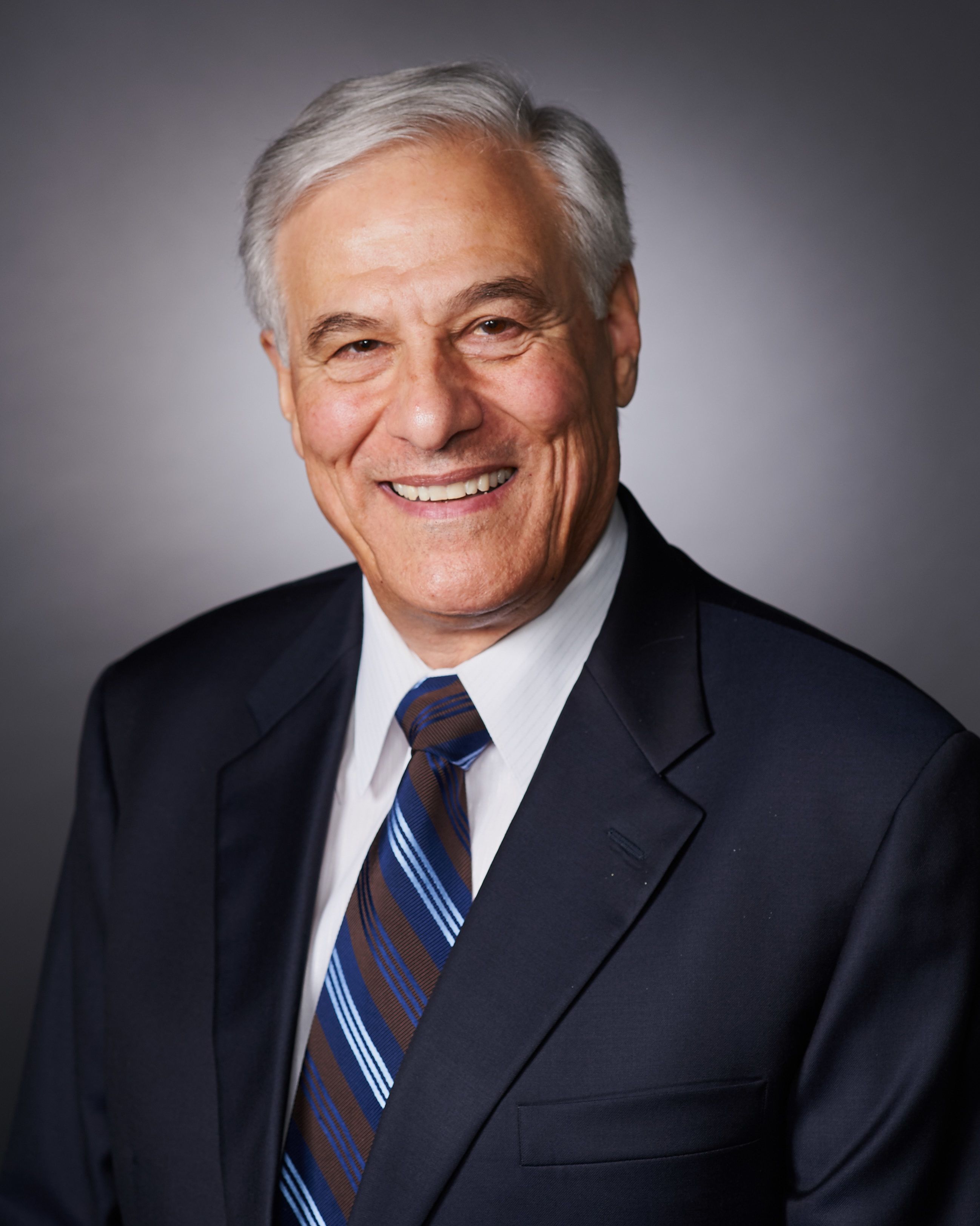
Dr. Richard Abraham is an emergency and occupational medicine physician and one of the founding partners of Cascade Medical Associates.
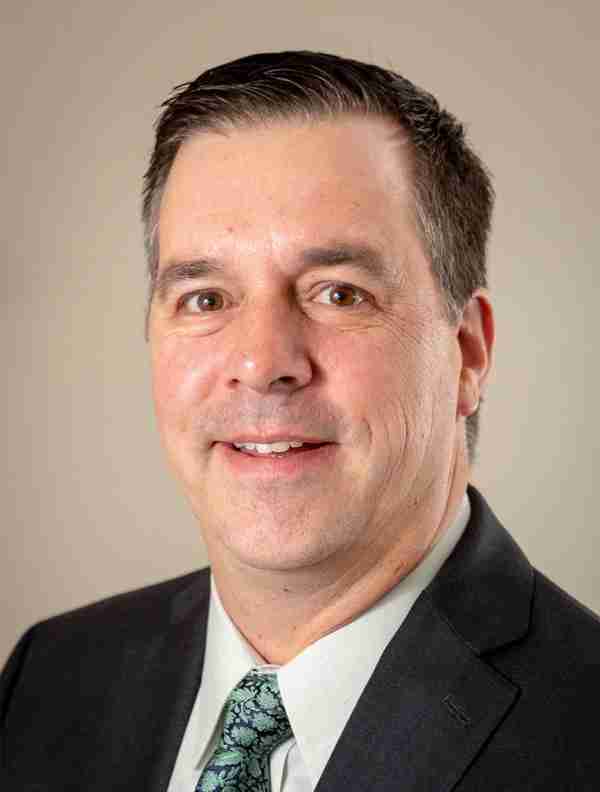
Dr. Brian Hoyt is a University of Oregon alum, as well as an emergency room physician and a member of Cascade Medical Associates.
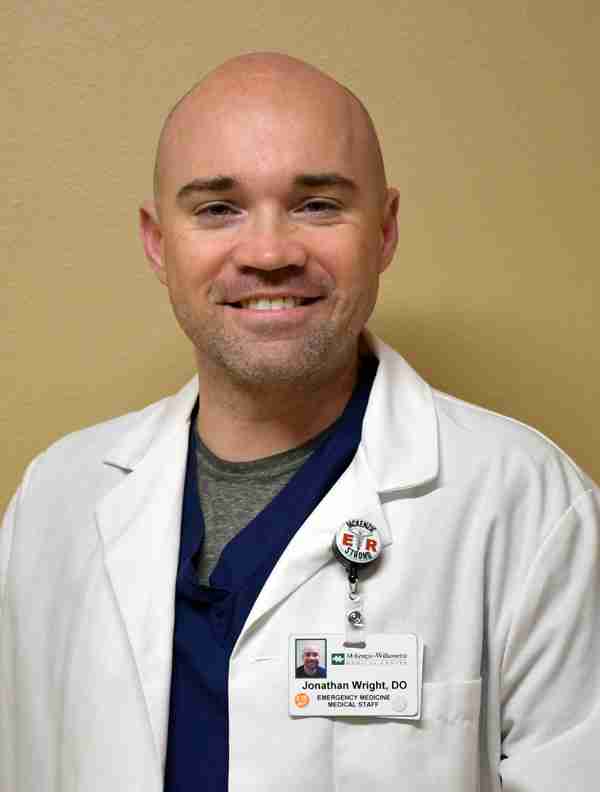
Dr. Jonathan Wright is a physician and ER medical director at McKenzie Willamette Medical Center and a part of the Cascade Medical Associates team.
Learning alongside the experts
Being in the trenches with student athletes may give interns a shot of game day adrenaline, but the bigger outcome is the experience they gain. When the game clock winds down, interns also can learn about the medical industry by shadowing physicians at work, whether it's an emergency room or physical therapy office.
"Students are going to experience things that they just don't see day to day, and the emergency room is a different world," says Abraham. "Students I've had over the years still remember specific experiences from shadowing me to this day."
One of those former students is Dr. Brian Hoyt, who now works alongside Abraham at Cascade Medical Associates' Oregon Telemed service and graduated with a bachelor's degree from the UO College of Arts and Sciences in 1992.
When Hoyt was a CAS undergrad, he shadowed Abraham at the McKenzie-Willamette Hospital Emergency Room in Springfield. The experience gave him an idea of whether he really wanted to pursue medical school. And that's an experience that Hoyt says undergrads may have through the human physiology internship program.
"They're on the sidelines. They see the athlete. They see somebody get hurt," Hoyt says. "Maybe that intern can watch the orthopedic surgery if the student-athletes have to have surgery on their ankle, go to physical therapy and see how that works. They get exposure to physiology health occupations."
Many undergraduate programs don't include industry exposure into their curriculum, according to Dr. Jonathan Wright, physician and ER medical director at McKenzie Willamette Medical Center and a part of the Cascade Medical Associates team. Having a program that allows students to shadow a medical professional is a way for them to have a more competitive application for medical school.
"The schools want to see that you actually have some insight into what it is you're going to be trying to do," Wright says. "You're making students that much more competitive to say, 'Hey, we didn't just get 'As' on our tests. We've spent time in the hospital, in an emergency department, in a clinic, in a clinician's office.'"
How stipends make a difference
For students like Smith, long days, early morning practices and weekend games are all part of the schedule. Smith says she would arrive up to two hours early to help set up watering stations, make sure there's plenty of ice available and help with taping joints before practice.
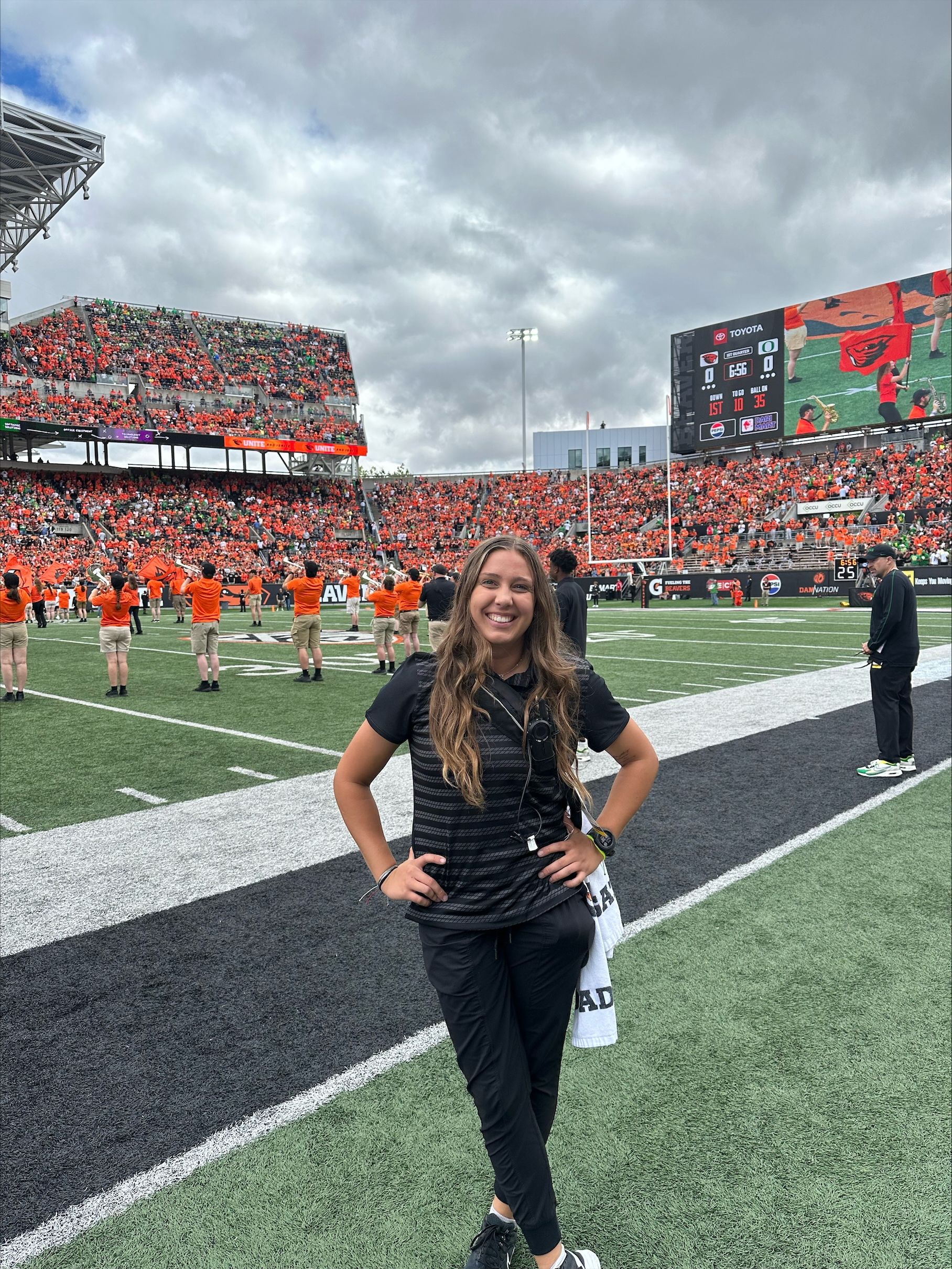
"I think having funding for this program is very important because a lot of students need it," Smith says.
McDonald, who often starts his workday around 5:30 or 6 a.m., agrees that having a stipend relieves some of the pressure.
"The stipends are incredible, being able to have that money and not worry about picking up a second job," he says. "I'm extremely grateful."






